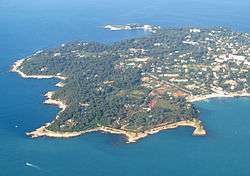Édouard Bague
| Édouard Jean Bague | |
|---|---|
| Born |
19 May 1879 Paris[1] |
| Died |
5 June 1911 (aged 32) Mediterranean, near Cap d'Antibes |
| Cause of death | Air accident (presumed) |
| Nationality | French |
| Aviation career | |
| Known for | Disappeared on 5 June 1911 while attempting to fly from Nice to Corsica[2] |
| Flight license |
23 November 1910 Paris |
Édouard Jean Bague (1879 – 1911) was an early twentieth-century French aviator. A lieutenant in the Algerian tirailleurs, he obtained his aviators's licence (number 337) from the Aéro-Club de France on 23 November 1910.[3] He resigned his commission early in 1911 to concentrate on aviation and, in particular, his plan to cross the Mediterranean by air. In the same year he published two books, Mes premières impressions d'aviateur and Nice-Gorgone en aéroplane under the name Édouard Bague.[4]
In an initial attempt in March 1911, he planned to fly from Antibes to Ajaccio, Corsica, from there to Sardinia and then via Sicily to Tunis.
On that occasion, due to a navigation error, he did not reach Ajaccio. Instead, after a flight which began at 7.30am and ended at 1.00pm, Bague landed on the small wooded Italian island of Gorgona. His Blériot monoplane was seriously damaged on landing, and Bague was injured.[3] The distance of over 200 km he covered on this occasion established a new record for a flight over the sea.[5] According to a Reuters report, his escape from death on this occasion was considered "miraculous".[6]

On 5 June 1911, Bague made a second attempt to cross the Mediterranean by air. His planned itinerary was:
- Nice to Calvi, Corsica (170 km)
- Calvi to Ajaccio, Corsica (80 km)
- Ajaccio to Sassari, Sardinia (150 km)
- Sassari to Cagliari, Sardinia (200 km)
- Cagliari to Bizerta, Tunisia (200 km)
- Bizerta to Tunis (80 km)[3]
His aircraft disappeared shortly after departing from Nice. It was reported that he embarked on the flight without a compass.[6] A witness reported sighting an aircraft apparently in difficulty in the area through which Bague would have been expected to have been flying.[2]
Several French naval vessels undertook an extensive sea search for Bague; the Ministry of the Marine despatched the destroyer Arbalète and six torpedo boats from Ajaccio and the destroyer Mousqueton and six torpedo boats from Toulon.[7] However, no trace of Bague or his airplane was found, then or subsequently.[2]
References
- ↑ "De Nice la Corse EN AÉROPLANE - SANS ÊTRE CONVOYÉ - un lieutenant de tirailleurs réussit cette traversés". L'Ouest-Éclair (in French). Rennes (4426): 1. 6 March 1911. Retrieved 2011-07-03.
- 1 2 3 "Little Hope Left for Airman Bague: Fisherman believes Lieutenant fell into sea an hour after leaving Nice". New York Times. New York. 7 June 1911.
- 1 2 3 "On a perdu tout espoir de retrouver l'aviateur Bague". Le Petit Parisien (in French). Paris: 1. 7 June 1911. Retrieved 2011-07-03.
- ↑ Nice-Gorgone, en aéroplane Édouard Bague; Paris ; Nancy : Berger-Leurault, 1911.
- ↑ "FLIES 124 MILES OVER SEA TO ISLET; Lieut. Bague, with No Vessel as Escort, Makes Flight from the French Coast Beyond Corsica. LANDS ON ROCKY GORGONA Breaks Monoplane and Record, but Is Not Hurt -- Planned to Make Corsica and Proceed to Tunis". New York Times. New York. 6 March 1911.
- 1 2 "AVIATION - MEDITERRANEAN FLIGHT - Feared death of Lieutenant Bague". Irish Times. Dublin: 7. 7 June 1911.
- ↑ "Bague l'Héros de la Méditerranée doit s'être perdu en mer". La Presse (Paris) (in French). Paris: 1. 7 June 1911. Retrieved 2011-07-03.